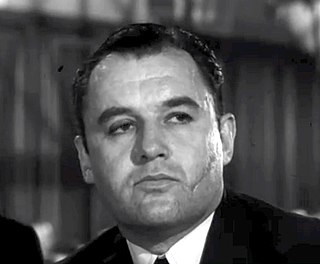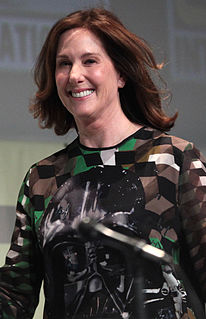A Quote by Rod Steiger
I had read the novel and I had heard David Lean was going to direct it - and it came as a surprise to me because American actors, if given the chance, can do style as well as anybody and speak as well as anybody.
Related Quotes
AMD's history is we've always had great technology. We've had periods of time where we've done really, really well, and we've had periods of time where we've done not so well. But most of the time we've done well, it's because we've had a leadership product or some technology where we were out in front before anybody else.
I wish it had been something as sexy as the old Joey Tribbiani, falling-down-an-elevator shaft. But no. It just faded out. I wasn't related to anybody or anybody's lost, amnesiac lovechild in One Life to Live. They just didn't have room for me, so it was a slow fade. I remember feeling the writing on the wall: "This is not going to end well for me."
I met Michael Snow and Stan Brakhage the second day after I arrived, you know. I had never seen or heard of Brakhage. For me, it was a revolution, because I was well educated in film, but American-style experimental film was known to me in the abstract, and I had seen practically nothing. I had seen a film then that Noël Burch had found and was distributing called Echoes of Silence. It was a beautiful film, three hours long. It goes forever and it was in black and white, very grainy, and I saw that film and I thought...it was not New Wave. It was really a new concept of cinema.
[David Lean's] images stay with me forever. But what makes them memorable isn't necessarily their beauty. That's just good photography. It's the emotion behind those images that's meant the most to me over the years. It's the way David Lean can put feeling on film. The way he shows a whole landscape of the spirit. For me, that's the real geography of David Lean country. And that's why, in a David Lean movie, there's no such thing as an empty landscape.
Well, maybe it was just that I wasn't going to like anybody because I had to work and I had to explain to my teachers why I wasn't keeping up. I'd fall asleep and things in class and they'd lecture me about the reality of their classroom. I said, 'You want to see my reality?' I opened up my backpack to where you usually keep your pencils. That's where I kept my bills... electric bills, rent... That was my reality.
At one point I would read nothing that was not by the great American Jews - Saul Bellow, Philip Roth - which had a disastrous effect of making me think I needed to write the next great Jewish American novel. As a ginger-haired child in the West of Ireland, that didn't work out very well, as you can imagine.
When Wikileaks came out... never heard of Wikileaks, never heard of it. When Wikileaks came out, all I was just saying is, "Well, look at all this information here, this is pretty good stuff." They tried to hack the Republican, the RNC, but we had good defenses. They didn't have defenses, which is pretty bad management. But we had good defenses, they tried to hack both of them. They weren't able to get through to Republicans. No, I found it very interesting when I read this stuff and I said, "Wow." It was just a figure of speech. I said, "Well, look at this. It's good reading".
Senator John McCain is unlike anybody else in not - not just in the Senate but in American politics. He`s unlike anybody else in American life. In his public life and in his heroics in war. He`s a singular figure in American life and American history. I think for everybody who has ever had a political difference with him that just instantly evaporates in the face of wanting the best for him because of cancer.
I just started trying to figure out how to write [something] which was unlike anything anybody had ever seen, and once I felt like I had figured that out I tried to figure out what kind of book I could write that would be unlike anything anybody had ever seen. When I started writing A Million Little Pieces I felt like it was the right story with the style I had been looking for, and I just kept going.




































